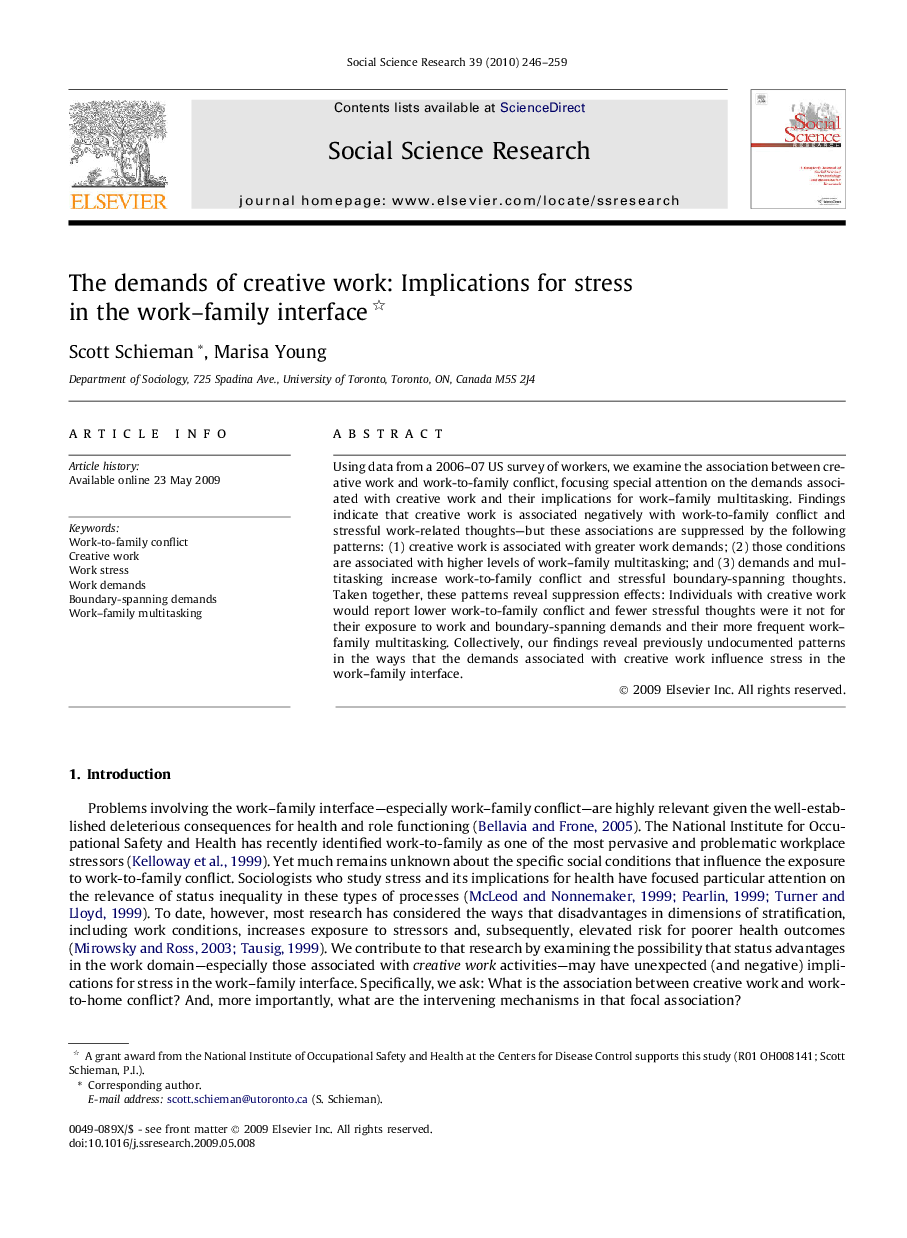| Article ID | Journal | Published Year | Pages | File Type |
|---|---|---|---|---|
| 956365 | Social Science Research | 2010 | 14 Pages |
Using data from a 2006–07 US survey of workers, we examine the association between creative work and work-to-family conflict, focusing special attention on the demands associated with creative work and their implications for work–family multitasking. Findings indicate that creative work is associated negatively with work-to-family conflict and stressful work-related thoughts—but these associations are suppressed by the following patterns: (1) creative work is associated with greater work demands; (2) those conditions are associated with higher levels of work–family multitasking; and (3) demands and multitasking increase work-to-family conflict and stressful boundary-spanning thoughts. Taken together, these patterns reveal suppression effects: Individuals with creative work would report lower work-to-family conflict and fewer stressful thoughts were it not for their exposure to work and boundary-spanning demands and their more frequent work–family multitasking. Collectively, our findings reveal previously undocumented patterns in the ways that the demands associated with creative work influence stress in the work–family interface.
